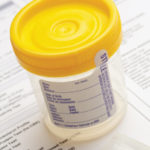Drug Testing in the Office
Alcohol and drug abuse by employees can result in safety hazards, decreased productivity, and low employee morale. Drug testing is a simple and inexpensive way for employers to identify the use of alcohol, prescriptions, and illegal drugs and help to curb use by employees. Employers who maintain a drug-free workplace reduce the potential for drug-related accidents and incidents and may also qualify for Worker’s Compensation discounts and perks.
In order to avoid liability and ensure compliance with Federal and State regulations, employers should consult with an employment attorney and follow additional guidelines prior to implementing an office drug-testing program. Choosing a qualified lab to ensure the accuracy and validity of the testing process is critical, and privacy is of utmost concern as test results may be considered to be protected personal health information.
It is best practice for employers to provide a clear, written drug-testing policy to all employees in order to avoid any suggestion of impropriety. Employers may choose to test employees prior to hire, post-accident, randomly, periodically, for-cause, or after returning to employment following a period of absence. Turn-around time is typically 24 hours for negative results, and 48-73 hours for additional testing on non-negative samples. Employees are usually required to sign a waiver allowing the test results to be released to their employer.
Drug tests for employees typically consist of a pre-selected group or a panel covering a variety of substances. The most commonly-tested drugs are amphetamines (meth, speed, ecstasy), THC (cannabinoids, marijuana, hash), cocaine (coke, crack), opiates (heroin, opium, codeine, morphine), and phencyclidine (PCP, angel dust.
It is important to understand that while testing indicates the presence of a drug in the system, it does not necessarily mean that the employee is impaired while working. A well-rounded program includes employee and supervisor education to help raise awareness of the dangers of drug use and an Employee Assistance Program (EAP) designed to provide counseling and other services to employees experiencing alcohol or drug problems.
